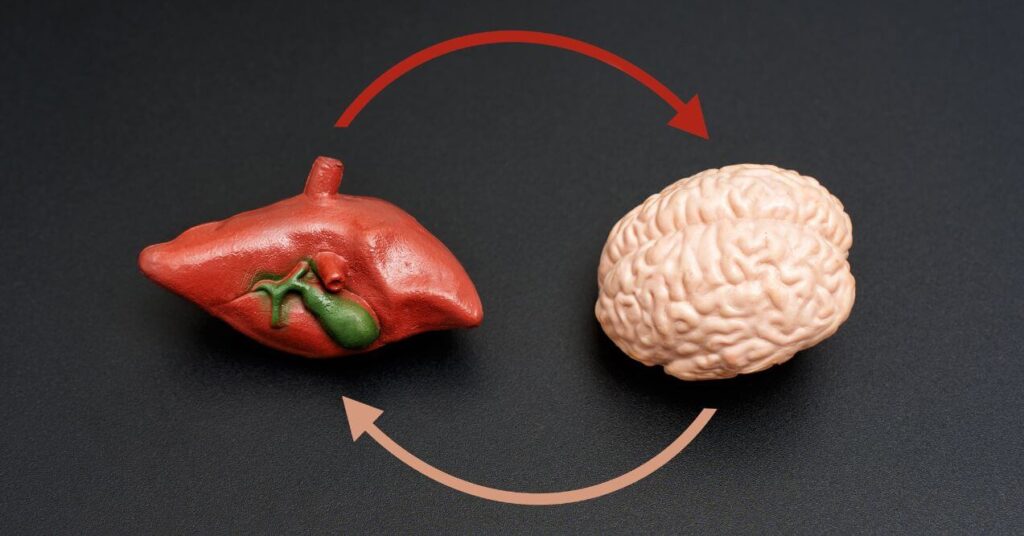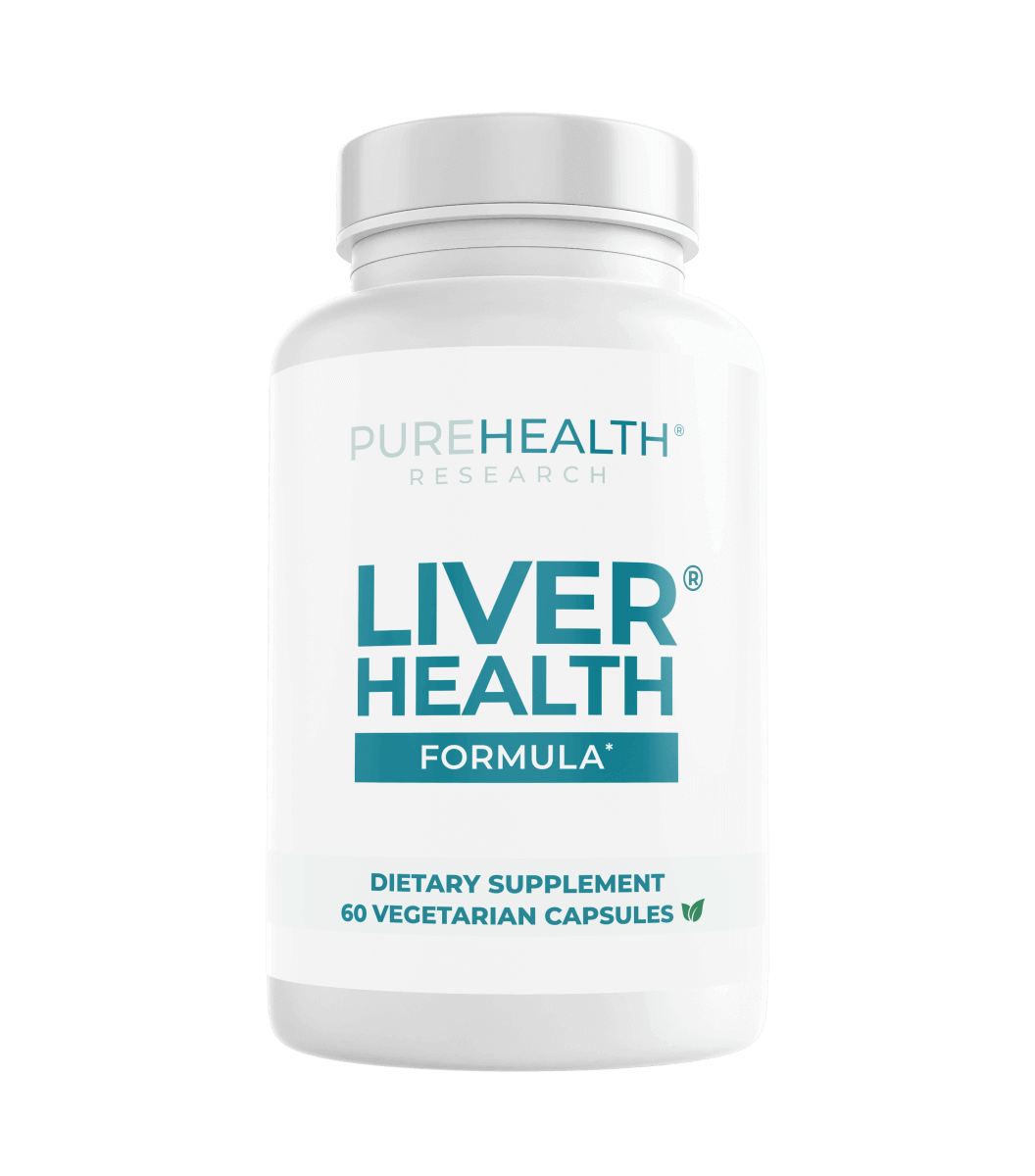10 Interesting Facts About the Liver
Did you know the facts about the liver, like its relationship with iron and healthy brain? No? Come and find out now.


The liver, coincidently your body’s largest internal organ, is extraordinary. It’s a survival tool, and we are not exaggerating. It has wide-ranging functions, from detoxification and bile production to metabolism regulation. Your liver is resilient, especially when your body needs the extra boost.
To honor the liver, much of this article will focus on 10 interesting facts about the liver. Read it to understand this organ’s beautiful design and crucial roles. You can be sure to develop a newfound appreciation for the liver and how it contributes to our overall well-being!
Liver Anatomy
The liver sits beneath the diaphragm on the upper right side of your abdomen. Weighing about as much as a box of wine, it has two primary lobes. The organ receives blood through the hepatic artery.
Above, we highlighted the liver’s resilience. However, it’s crucial to understand that it can suffer injury. What foods can damage your liver? Alcohol, high-fructose foods, and excessive fat are sources of liver inflammation. How do you protect your liver? A healthy diet does the trick!
Liver Function
What is the function of the liver? Here are five crucial points:
- Metabolism – The liver metabolizes carbs, proteins, and fats, bringing your body energy and essential nutrients.
- Detoxification – Toxin exists in our blood. What filters it out? Yes, the liver.
- Protein Synthesis – How does our blood clot, and what balances our body’s fluids? Albumin and clotting factors are proteins produced by the liver to help with these functions.
- Storage of Vitamins and Minerals – Think of a storage unit filled with vitamins and minerals. No, that’s not your favorite drugstore. It’s your liver. Whenever our body requires them, the organ releases them!
- Nutrient Processing – The liver takes absorbed nutrients from the digestive tract and turns them into glucose, amino acids, and more.

Want to improve liver function? Read on for 10 interesting facts about the liver that will guide you in that process.
10 Facts About the Liver
Have you ever examined your stools, skin, or energy levels? Do they look healthy and good? These are vital indicators of how your liver is working. Moreover, if you’re trying to cleanse your system, these are signs of a liver detox working!
Are you ready? Ten fun facts about the liver are coming right up!
Fact 1: A Healthy Liver Helps Keep Your Brain Healthy
Feeling a little hazy? Your liver may be the reason. If it doesn’t do a good job of filtering toxins out of the blood, they will affect the brain! Without optimal liver function, you might suffer confusion and memory loss. In severe cases, you may even fall into a coma!
Fact 2: The Liver Can Regenerate Itself
All hope isn’t lost when your liver suffers injury or surgery. It’s an incredible organ that can regenerate by itself! So, despite incurring significant damage, your liver can not only continue to function but also repair itself. Isn’t that wonderful?
However, it’s essential to stay alert to warning signs of liver damage you shouldn’t ignore, such as unexplained fatigue, yellowing of the skin or eyes (jaundice), and dark urine. Recognizing these symptoms early can help you take action to support your liver’s healing process and overall health.
Fact 3: It Stocks Iron
What causes anemia? It’s the lack of iron. Thankfully, the liver takes the excess iron from whatever we eat and stores it. When our body requires more iron, the liver releases it. That’s how we get a steady stream of iron, which is essential for producing hemoglobin.
Fact 4: The Liver Can Produce Glucose
You probably know that glucose equals energy. But were you aware that the liver produces it? During gluconeogenesis, the liver transforms amino acids and glycerol into glucose. So, at your next fast or workout, pay attention. Your liver is helping you sustain energy levels!
Fact 5: The Liver Can Produce Heat
Heat is a product of the fat metabolic process. Your body needs an optimal temperature for enzyme survival and cellular reactions that keep you alive. Thanks to the liver’s fat metabolic process, it contributes to the maintenance of your body’s core temperature.
Fact 6: The Liver Can Produce Hormones
The liver synthesizes angiotensinogen, a precursor to angiotensin. This hormone regulates your blood pressure and fluid balance. Ever felt faint? It might be your blood pressure dropping. Here, your kidneys raise sodium and blood volume and release renin, which converts angiotensinogen into angiotensin, a hormone that constricts blood vessels, helping return your blood pressure to optimal.
Fact 7: Liver May Affect Mental Health
Liver function affects mental health – did you know that? The brain doesn’t deal well with toxic blood. Thankfully, our powerhouse organ breaks down harmful toxins from the blood and shuttles them for safe elimination. The result is better moods and thinking skills. Prone to low moods and anxious feelings? Examine your liver function!
Fact 8: The Liver Can Metabolize Alcohol
Some of us like to let loose with alcohol. We can do that thanks to our liver. Through certain enzymes, like alcohol dehydrogenase and aldehyde dehydrogenase, which process the alcohol. Scarring can still occur, though, so drink wisely!
Fact 9: Dual-Blood Supply
Blood flows into the liver via the hepatic artery and portal vein. One source brings oxygenated blood, whereas the other is full of nutrients from the intestines. Interestingly, this varied blood supply means that the body gets the right balance of nutrients and oxygen.
Fact 10: The Liver Is the Second Largest Organ in Your Body
The liver is the second-largest organ of the body (after the skin). Its extensive cell and blood vessel networks are pushed to the limit daily to perform essential functions.
What’s the Best Way to Improve Liver Function?
Ever wondered why some people seem so healthy and fit? They’re mentally and physically sound and so energetic. Plus, their body looks incredible. If you went with them to get a full body checkup, you’d realize that their liver is functioning optimally.
Now, not everyone’s liver works at 100%. Sometimes, we need a little boost, and that comes in the shape of PureHealth Research’s Liver Health Formula. This supplement is one of the best supplements for liver health, because of the natural approach to stubborn fat, fatigue, and digestive issues.
The liver is resilient; that’s true. But all that work wears it down. To significantly support your liver’s health, give it milk thistle, turmeric, and L-cysteine. Now, it isn’t a mere coincidence that the Liver Health Formula contains all this and more. This supplement’s ingredients help the liver detoxify harmful agents, burn fat, improve energy levels, and optimize cellular regeneration and renewal. In addition, a revitalized liver optimizes multiple levels of health, including digestion. Support your liver today, and you’ll enjoy a boost of energy like never before.
Conclusion
Throughout this article, we shone the spotlight on interesting facts about the liver. This organ’s regeneration ability and unique functions make it essential for health. Consider its size and two crucial blood supplies. So, thinking about eating at your favorite fast-food outlet or having a bit too much wine? Check whether these are not the foods that damage your liver? Keep these liver functions in mind: it metabolizes carbohydrates, proteins, and fats, boosts moods, improves cognitive function, and stores vital vitamins and minerals. The above facts about the liver highlight its resilience. It regenerates and sustains our lives. Don’t abuse it!
1. The liver is the second-largest organ in the body, after the skin.
2. It has the unique ability to regenerate itself even after significant damage.
3. The liver plays a crucial role in detoxifying harmful substances from the blood.
4. It produces bile, which helps in the digestion and absorption of fats.
5. The liver stores essential vitamins and minerals, including iron and vitamin B12.
The liver is fascinating because it is the only organ that can regenerate itself, even after losing up to 75% of its tissue. It performs over 500 vital functions, making it one of the most hardworking organs in the body. Additionally, it has a dual blood supply, receiving oxygenated blood from the hepatic artery and nutrient-rich blood from the portal vein, ensuring it remains efficient in processing nutrients and toxins.
1. It detoxifies harmful substances from the blood.
2. It metabolizes nutrients to provide energy.
3. It produces bile to aid in digestion.
The liver metabolizes carbohydrates, proteins, and fats. It produces bile for digestion and filters and detoxifies blood. It stores vitamins and minerals and regulates blood sugar levels. The liver synthesizes cholesterol and produces clotting factors to stop bleeding. It converts ammonia into urea for excretion and stores glycogen for energy. It metabolizes medications and drugs and breaks down old red blood cells. The liver helps in immune function and produces proteins like albumin. It converts excess glucose into fat and assists in hormone metabolism. It helps maintain fluid balance in the body and regulates blood pressure through hormone production. The liver supports brain function by removing toxins and produces enzymes essential for digestion. It also generates heat through fat metabolism.
Sign up for our Healthy Living newsletter!
Advertisement. This site offers health, wellness, fitness and nutritional information and is designed for educational purposes only. You should not rely on this information as a substitute for, nor does it replace, professional medical advice, diagnosis, or treatment. If you have any concerns or questions about your health, you should always consult with a physician or other health-care professional. Do not disregard, avoid or delay obtaining medical or health related advice from your health-care professional because of something you may have read on this site. The use of any information provided on this site is solely at your own risk.














